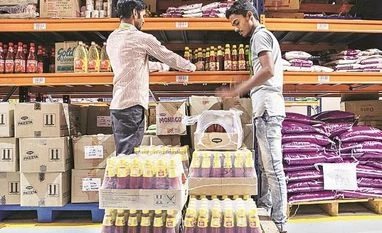Some of the world’s top consumer goods companies, including Unilever, Coca-Cola, and PepsiCo, are worried about the impact of localised lockdowns in India on their business, even as the threat of community transmission of Covid-19 grows in the country.
Kerala has confirmed community transmission in the state, despite the central government denying any signs of it in the country. India’s overall tally of cases has now crossed the 1.2-million-mark, ranked third after the US and Brazil. Localised lockdowns are in place in at least 14 states in the country to tackle the spread of the virus.
On Thursday, Alan Jope, chief executive officer (CEO), Unilever, said he was worried even though the firm has kept some of its powder dry in managing the challenges. “The India market was already slowing before the Covid-19 pandemic struck,” he said at an investor call, following announcement of the company’s June quarter results.
“While we are well positioned to capitalise on the demand trends, given that 80 per cent of our business (in India) is focused on hygiene, health, and nutrition, we do not know when India will rebound from the current market conditions. The country is now seeing local shutdowns after a nationwide lockdown. How the virus will react is anybody’s guess,” said Jope.
On Tuesday, James Quincey, chairman and CEO, The Coca-Cola Company, said local lockdowns were hurting business significantly. “It is unlikely that recovery will be linear. There are too many unknowns ahead of us — like the continuing lockdown in India. In many markets after unlocking began, lockdown had to be reimposed, taking sales into negative territory.”
Ramon Laguarta, chairman and CEO, PepsiCo, said the situation remains fluid in India. “As we see the pandemic evolving and growing in markets such as Africa, South America, parts of West Asia, and India, we’re seeing an impact on traffic into stores. Out-of-home (OOH) drives the business. So, it’s still very fluid,” said Laguarta.
India is a key market for the maker of Pepsi and Lay’s, having made significant investments in India, both in food and beverages over the years. In the June quarter, PepsiCo reported double-digit sales decline in both food and beverages, since OOH activities have been minimal during the period.
For rival Coca-Cola, in contrast, India is the third-largest market in Asia, behind China and Japan, and the fifth-largest globally. The Indian unit brought down the performance of the regional business in the June quarter, due to an 18 per cent volume decline registered in the period.
For Unilever, on the other hand, India is the second-largest market in value terms after the US, contributing close to 10 per cent to it’s top line.
On Tuesday, Hindustan Unilever had reported an 8 per cent volume decline in the June quarter due to Covid-19 disruptions. While the essentials portfolio, which constitutes 80 per cent of HUL’s business, grew 6 per cent in the quarter, discretionary and OOH segments degrew sharply, it said.
Laguarta said e-commerce was a key area of focus for the firm, where it could gain market share. This point is endorsed by Quincey and Jope, who say the pandemic has pushed up online shopping significantly.
Unlock 30+ premium stories daily hand-picked by our editors, across devices on browser and app.
Pick your 5 favourite companies, get a daily email with all news updates on them.
Full access to our intuitive epaper - clip, save, share articles from any device; newspaper archives from 2006.
Preferential invites to Business Standard events.
Curated newsletters on markets, personal finance, policy & politics, start-ups, technology, and more.
)